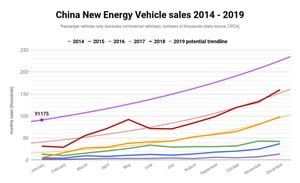Russian President Vladimir Putin is doubling down on diplomatic relations with Africa, promising "total support" for the continent amid mounting tensions with the West. His remarks came during the Russia-Africa conference held at the Black Sea resort of Sochi, which ran over the weekend. The conference gathered foreign ministers and senior officials from various African nations, where Putin's speech was delivered by Foreign Minister Sergei Lavrov.
Under pressure from Western sanctions following its full-scale invasion of Ukraine, Moscow is eager to build new alliances across continents, particularly with countries facing their own challenges from Western influence. Putin stated, "Our country will continue to provide total support to our African friends in different sectors," emphasizing Russia's commitment to collaborations on sustainable development, counter-terrorism, health crises, food security, and disaster response.
Russia is striving to reposition itself as not just another superpower but as a supportive ally for African nations, tapping back to its historical ties during the Cold War when it was considered more of a partner than the Western colonial powers. Amid this backdrop, Putin asserted Russia’s determination to counter what it perceives as Western domination globally, inviting African leaders to join their call for a multipolar world.
Interestingly, Africa's growing interest in Russia is evident through the recent shifts by several West African nations. Niger, Mali, and Burkina Faso have all distanced themselves from their traditional ally, France, and now lean toward Moscow for military and economic support following military coups since 2020. These nations have reportedly welcomed Russian mercenaries, particularly from the notorious Wagner Group, which have left their mark on the continent's security dynamics.
At the conference, the rhetoric of rejecting Western "neocolonialism" struck a chord with many African leaders. Mali's Foreign Minister Abdoulaye Diop asserted, "Russia is not a colonial power. On the contrary, it has stood shoulder to shoulder with African peoples and other peoples around the world to help them emerge from the colonial system." This narrative plays well against the historical backdrop of colonial exploitation faced by many African nations.
Burkina Faso's Foreign Minister Karamoko Jean-Marie Traore echoed similar sentiments, presenting Russia as a more suitable partner for his country compared to its past relations with France. He explained, "The offer which has been made through cooperation with Russia, is best suited to the people of Burkina Faso." This perspective seems to be gaining momentum among nations seeking alternatives to Western influence.
Although the allure of Russian support is palpable for these African countries, international relations expert Bakary Sambe expressed some skepticism about Russia's long-term commitment to Africa. He questioned if Russia would maintain the same level of interest if global tensions ease, particularly the conflict with Ukraine. This uncertainty prompts important questions about the depth and sustainability of this newfound partnership.
Since the Cold War, Russia has been attempting to regain its influence within Africa, historically seen as having significant roles during the Soviet era. This recent conference is part of broader efforts for Russia to promote its agenda and partnerships, signaling to the world and particularly the West, its intention to reshape alliances and influence.
Evidence of Russia’s commitment to Africa can be found not only through speeches but also concrete actions. Reports detail over $5 billion worth of arms deliveries to Africa during the year, coordinated through state arms exporter Rosoboronexport. Meanwhile, several prominent Russian companies, including diamond miner Alrosa and oil giant Lukoil, have continued to expand their investments on the continent, demonstrating the economic dimension of Russian-Africa relations.
A prominent feature of these relations is the involvement of the Wagner Group, which has been active across multiple African nations, providing military support to various regimes grappling with security challenges. This has created a complex situation on the continent, where some leaders view this military support as beneficial, particularly when struggling against Islamist insurgencies.
While the calls for multipolarity resonate within diplomatic circles, it remains to be seen how effectively Russia can navigate its relationships within Africa. The continent's diverse political landscapes pose challenges, especially as nations weigh their dependencies on external powers against the backdrop of their own domestic priorities.
Through this renewed engagement with Africa, Russia is attempting to showcase its role as an alternative to the West—one willing to offer assistance colored with non-interference rhetoric. Yet, as African countries increasingly engage with Russia, one has to wonder about the future of these alliances and how they will evolve as global dynamics shift. Will African nations find genuine partners willing to support their paths to development, or will they fall prey to another wave of dependency? That remains to be seen as both Russia and African nations tread carefully through the volatile waters of international diplomacy.



